MercoPress. South Atlantic News Agency
Tag: soybean
-
Wednesday, February 15th 2012 - 00:33 UTC
Brazil and Paraguay soybean harvest forecast downgraded because of lack of rain
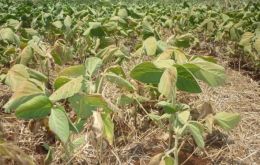
Oil World cut its forecast for Brazil and Paraguay soybean production, extending the run of downgrades amid ideas that rains in the last two weeks has been insufficient to put a hold on crop losses.
-
Friday, February 10th 2012 - 04:15 UTC
Brazil anticipates a 3% contraction in the 2011/12 crop because of severe drought
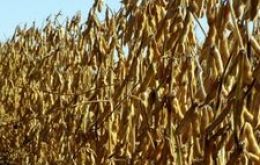
The 2012 Brazilian grains and oilseed is expected to be below the 2011 record because of the intense drought in the months of December and January, particularly to the south of the country where soybeans and rice suffered most reported the Geography and Statistics Institute, IBGE.
-
Saturday, January 28th 2012 - 07:13 UTC
Drought in Argentina and Brazil cuts significantly corn crops’ volumes
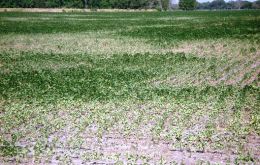
Corn advanced heading for the biggest weekly gain in five as concerns that a renewed heat wave in Argentina and south Brazil may damage crops boosted demand for US grain. Soybeans were little changed.
-
Wednesday, January 18th 2012 - 05:12 UTC
Drought emergency in central Argentina and Paraguay but no sufficient rains on sight

Argentine corn and soy farms will suffer from hot weather and scant rains for the rest of this week, forecasters said on Tuesday, increasing worries that crop losses will eat into global supplies.
-
Wednesday, January 4th 2012 - 06:26 UTC
Dry weather, heat and lack of rain threaten Mercosur soybean crop
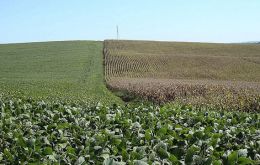
Mercosur soybean production is expected to fall 2.9% after dry weather and heat damaged crops in Brazil and Paraguay and as conditions deteriorate in Argentina, Hamburg-based industry researcher Oil World said.
-
Wednesday, November 23rd 2011 - 20:23 UTC
Weaker currency helps Brazil recover strong trade surplus

Brazil posted a trade surplus of 2.355 billion dollars in October, beating forecasts for a third straight month, outpacing imports in the final days of the month following a recovery in global commodities prices.
-
Tuesday, November 22nd 2011 - 22:07 UTC
Uruguay’s central bank confident about commodities’ price prospects

Uruguay’s Central bank sees “few probabilities” of a strong deceleration in emerging economies or a ‘significant’ fall in commodities prices even when lately there has been a drop in the value of grains although still above their historic average.
-
Monday, November 21st 2011 - 07:10 UTC
Argentina forecasts 49.5 million tons of soybeans 12 million tons of wheat

Argentina's 2011-12 soybean area will likely rise 0.6% on the year to 19 million hectares, the Agriculture Ministry said in its weekly crop report. The forecast is the first from the ministry for soybeans, the country's top crop and export.
-
Saturday, November 12th 2011 - 09:53 UTC
Argentina expects soy crop of 49.5 million tons and 30 million tons of corn

Argentina's 2011/2012 soy harvest is seen at 49.5 million tons, down from 50.3 million tons last season, the Rosario Grains Exchange said in its monthly crop report on Friday.
-
Wednesday, September 28th 2011 - 00:58 UTC
Argentine 2010/11 crop a “historic record” breaks 100 million tons benchmark
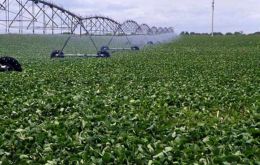
Argentina 2010/2011 crop reached 102.082 million tons of grains and oil seeds, a ‘historic record’, according to an official release from the Ministry of Agriculture.
